DOXORUBICIN - INJECTION
PHONETIC PRONUNCIATION: (dox-oh-REW-beh-sin)
COMMON BRAND NAME(S): Adriamycin, Rubex
GENERIC NAME(S): doxorubicin HCl
Uses
USES: Doxorubicin is an anthracycline type of chemotherapy that is used alone or with other treatments/medications to treat several different types of cancer. Doxorubicin works by slowing or stopping the growth of cancer cells.
How to use DOXORUBICIN - INJECTION
HOW TO USE: Read the Patient Information Leaflet if available from your pharmacist before you start receiving doxorubicin and each time you get an infusion. If you have any questions, ask your doctor or pharmacist. This medication is given by injection into a vein by a health care professional. The dosage is based on your medical condition, body size, and response to therapy. If this medication touches your skin, immediately and completely wash the skin with soap and water. If this medication gets in your eye, open the eyelids and flush with plenty of water for 15 minutes. Seek immediate medical attention. Caregivers should take precautions (e.g., wear gloves) to prevent contact with the patient's urine or other body fluid for at least 5 days after treatment. Consult your pharmacist. Unless your doctor instructs you otherwise, drink plenty of cool fluids during treatment with this medication. This helps move the drug quickly through your body and helps reduce some of the side effects.
Side Effects
Precautions
Interactions
Overdose
Images
Reviews
Faq for DOXORUBICIN - INJECTION
Doxorubicin injection is used to treat various types of cancer, including breast cancer, lung cancer, ovarian cancer, and certain types of leukemia. It is also used in combination with other medications to treat certain types of soft tissue sarcoma and osteosarcoma.
Doxorubicin is an anthracycline chemotherapy drug that works by slowing or stopping the growth of cancer cells. It does this by interfering with the DNA replication process within the cancer cells, preventing them from dividing and growing.
Doxorubicin injection is given by a healthcare professional through a needle into a vein (intravenously) or as a direct injection into a specific body part, such as the bladder or chest cavity.
Common side effects of Doxorubicin injection may include nausea, vomiting, hair loss, mouth sores, loss of appetite, diarrhea, fatigue, and a temporary discoloration of urine to a reddish color.
Yes, Doxorubicin injection can cause serious side effects such as heart problems, including heart failure and damage to the heart muscle. It can also lower the body's ability to fight infections and lead to a higher risk of developing certain types of cancers.
The frequency and duration of your Doxorubicin treatment will depend on the type and stage of cancer being treated, as well as your overall health. Your doctor will determine the most appropriate treatment schedule for you.
Yes, Doxorubicin injection may interact with other medications, including certain antibiotics, antifungal drugs, or other chemotherapy medications. It is important to inform your doctor about all the medications you are currently taking to avoid potential drug interactions.
Doxorubicin injection can harm an unborn baby, so it is generally not prescribed during pregnancy unless the potential benefits outweigh the risks. It is not recommended to breastfeed while receiving treatment with Doxorubicin, as it may pass into breast milk and harm the nursing infant.
If you miss a scheduled dose of Doxorubicin injection, it is important to contact your healthcare provider immediately. They will provide guidance on the next steps to be taken, which may include rescheduling the missed dose or adjusting the treatment plan accordingly.
Warning
WARNING: This medication must be given slowly into a vein only. It is very important not to inject this medication into a muscle or beneath the skin. If this medication accidentally leaks into surrounding tissue, the skin/muscle may be severely damaged. Notify your doctor right away if redness, blistering, sores, pain, or swelling occur at or near the injection site. Doxorubicin may cause heart problems, including possibly fatal heart failure. Heart problems may occur during doxorubicin therapy or months to years after receiving this medication. Your risk of developing heart problems depends on your dose, medical history (including previous heart disease, radiation therapy in the chest area), and previous use of this and other drugs (including daunorubicin and cyclophosphamide). Children are at higher risk and should be monitored later in life for delayed heart problems. See also Side Effects section. Very rarely, people with cancer who are treated with this type of medication have developed other cancers (e.g., secondary leukemia). The risk is greater if you are over age 50 or have received certain types of chemotherapy or radiation therapy. Consult your doctor for more details. This medication may cause certain severe (rarely fatal) blood disorders (bone marrow suppression leading to low red blood cells/white blood cells /platelets). This can lower your body's ability to fight infection and stop bleeding. Tell your doctor right away if you develop any signs of infection (e.g., fever, chills, persistent sore throat), unusual tiredness, or easy bleeding/bruising. Your doctor will closely monitor you while you are being treated with this medication. Different types of this medication work in different ways. Do not switch types of this medication without your doctor's permission.
Disclaimer
IMPORTANT: HOW TO USE THIS INFORMATION: This is a summary and does NOT have all possible information about this product. This information does not assure that this product is safe, effective, or appropriate for you. This information is not individual medical advice and does not substitute for the advice of your health care professional. Always ask your health care professional for complete information about this product and your specific health needs.
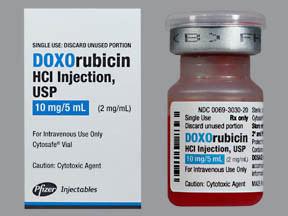
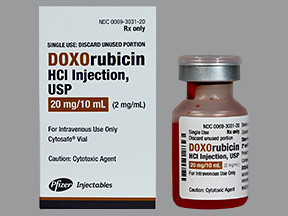
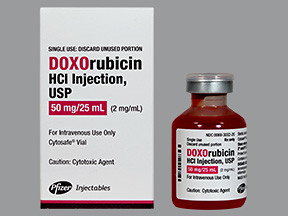
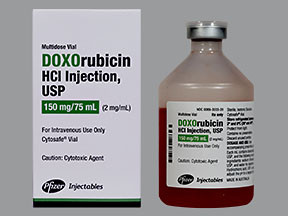
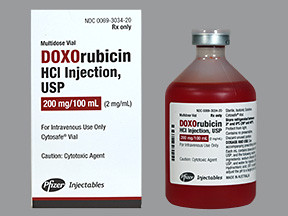

No Reviews Yet